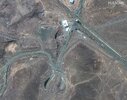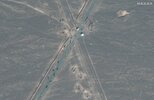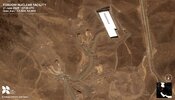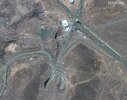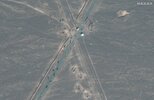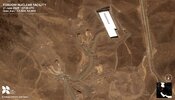As expected:
The fuse is lit. Iran’s parliament just voted to close the Strait of Hormuz. Not a bluff. Not a leak. A formal vote. The chamber stood and backed the move unanimously. The final call now sits with the Supreme National Security Council and Ayatollah Khamenei. That’s the last gate. If they sign off, the Strait shuts.
This isn’t just a regional tantrum. The Strait of Hormuz is the artery. It moves nearly 25% of the world’s seaborne oil. That’s 21 million barrels per day. The waterway is 33 kilometers wide at its narrowest point. The shipping lanes are only 3 kilometers across in each direction. One mine, one missile, one blockade — and the global energy market convulses.
Now they’re talking about the Red Sea. Iranian officials say it’s not just Hormuz anymore. The Red Sea is on the table. That’s a second chokepoint. That’s Suez Canal traffic. That’s global shipping lanes. That’s container vessels rerouting around Africa. That’s weeks added to delivery times and billions in added fuel costs.
The probability models are shifting. Analysts now peg the chance of a Hormuz closure at 55% before the end of 2025. That’s not a fringe scenario. That’s coin-flip territory. Oil traders are watching tanker routes. Insurance premiums are rising. Brent futures are frozen until Monday. If the Strait closes, $100 oil is the floor. Some models show $130 if the shutdown lasts more than two weeks.
Iran’s parliament doesn’t control the military. But this vote wasn’t symbolic. It was a signal. The Revolutionary Guard’s National Security Commission backed it. Commander Ismail Kowsari said the decision was “reached unanimously.” That’s not noise. That’s alignment.
The world is watching the Supreme Leader now. If Khamenei signs off, the Strait closes. If the Strait closes, the global economy gets punched in the ribs. Inflation returns. Supply chains buckle. Central banks freeze. And the next move belongs to the tankers.
 citizenwatchreport.com
citizenwatchreport.com
The fuse is lit. Iran’s parliament just voted to close the Strait of Hormuz. Not a bluff. Not a leak. A formal vote. The chamber stood and backed the move unanimously. The final call now sits with the Supreme National Security Council and Ayatollah Khamenei. That’s the last gate. If they sign off, the Strait shuts.
This isn’t just a regional tantrum. The Strait of Hormuz is the artery. It moves nearly 25% of the world’s seaborne oil. That’s 21 million barrels per day. The waterway is 33 kilometers wide at its narrowest point. The shipping lanes are only 3 kilometers across in each direction. One mine, one missile, one blockade — and the global energy market convulses.
Now they’re talking about the Red Sea. Iranian officials say it’s not just Hormuz anymore. The Red Sea is on the table. That’s a second chokepoint. That’s Suez Canal traffic. That’s global shipping lanes. That’s container vessels rerouting around Africa. That’s weeks added to delivery times and billions in added fuel costs.
The probability models are shifting. Analysts now peg the chance of a Hormuz closure at 55% before the end of 2025. That’s not a fringe scenario. That’s coin-flip territory. Oil traders are watching tanker routes. Insurance premiums are rising. Brent futures are frozen until Monday. If the Strait closes, $100 oil is the floor. Some models show $130 if the shutdown lasts more than two weeks.
Iran’s parliament doesn’t control the military. But this vote wasn’t symbolic. It was a signal. The Revolutionary Guard’s National Security Commission backed it. Commander Ismail Kowsari said the decision was “reached unanimously.” That’s not noise. That’s alignment.
The world is watching the Supreme Leader now. If Khamenei signs off, the Strait closes. If the Strait closes, the global economy gets punched in the ribs. Inflation returns. Supply chains buckle. Central banks freeze. And the next move belongs to the tankers.
Iran’s parliament votes to close the Strait of Hormuz. Red Sea next. Oil markets frozen. Global supply chain on edge.
The fuse is lit. Iran’s parliament just voted to close the Strait of Hormuz. Not a bluff. Not a leak. A formal vote. The chamber stood and backed the move unanimously. The final call now sits with the Supreme National Security Council and Ayatollah Khamenei.
 citizenwatchreport.com
citizenwatchreport.com

